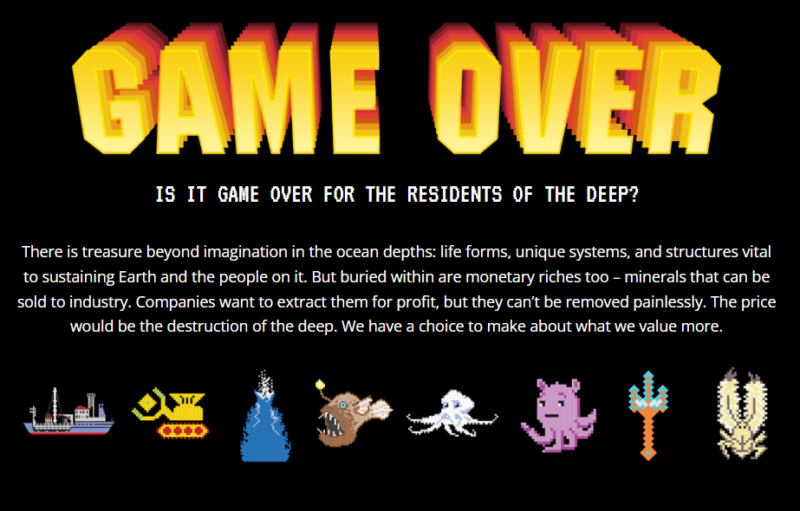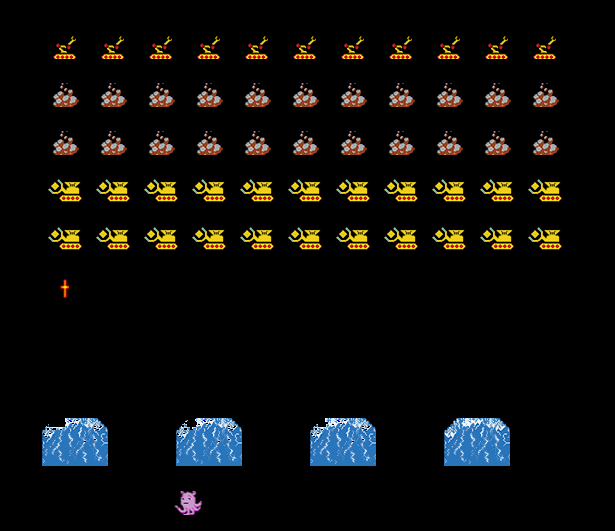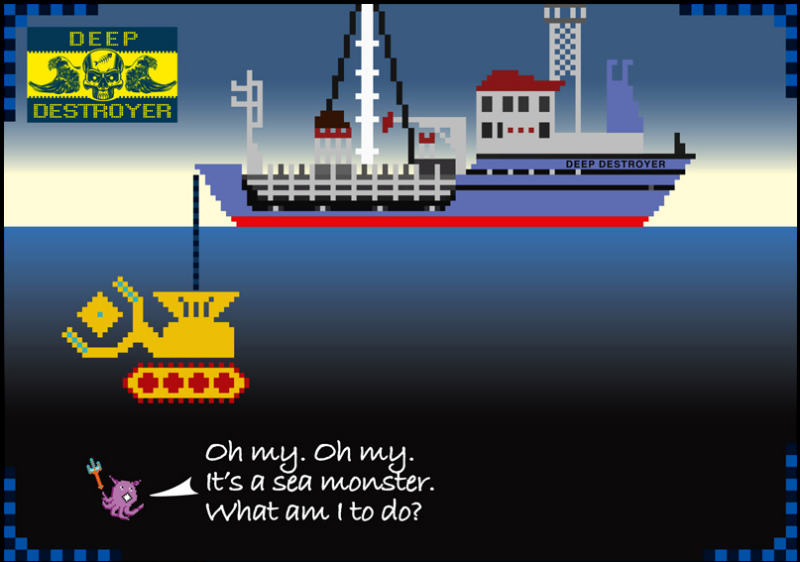An online game is raising awareness about the creatures of the deep sea and how global biodiversity will suffer if companies are allowed to mine minerals and resources from the deep sea.
The game can be played on the Deep Sea Conservation Coalition (DSCC) website. DSCC is an NGO that campaigns to protect ocean life.
Deep sea mining is a controversial emerging mining strategy where minerals and deposits are retrieved from the seabed via deep ocean mines. According to a report from BiologicalDiversity.org, this practice involved levelling the sea floor, resulting in the destruction of marine landforms and the creatures that live there.
While no countries are actively deep-sea mining yet, 16 international mining companies have been granted permission to excavate the sea floor. Extraction could begin as early as 2023.
Proponents claim that extracting minerals from the ocean seafloor is less disruptive than land-based mining. They added that deep-sea mining is essential in furthering the green energy transition, as current green-energy technology like electric vehicles and solar panels heavily rely on rare minerals such as nickel, cobalt, manganese, and other resources — many of which are found in abundant quantities under the sea.
Activists disagree and say deep sea mining is an unsuitable option.
These DSCC and other environmentalists warn that deep-sea mining will create irreversible cross-border devastation and destroy the habitats of marine creatures. Likewise, the environmental reporting group Grist notes that because of ecological pressures in the deep sea, once damaged, deep sea marine ecosystems could take centuries to recover — if at all. A report by the conservation charity Fauna and Flora International read:
Deep seabed mining will result in large-scale habitat removal. It will also produce sediment plumes which will disrupt ecological function and behavioural ecology of deep-ocean species, smothering fundamental ecological processes over vast areas.
Several countries have already voiced opposition to deep-sea mining. Leaders and parliamentarians from across the world have signed statements and petitions affirming their commitment against it. Others used World Ocean Day on June 8, the UN Ocean Conference on June 27, and the UN Biodiversity Conference (COP15) in December to promote awareness about the practice.
Pacific nations and communities are among the most consistent in drawing attention to the long-term negative impact of deep-sea mining on humanity.
Despite the opposition, the International Seabed Authority has issued 31 licenses for deep-sea mineral exploration. Once the guidelines are issued, large-scale commercial deep-sea mining may start in July 2023.
Meanwhile, green groups and advocates marked #DeepDay on December 5 by highlighting the dangers of deep-sea mining.
In celebration of #DeepDay, swipe to learn about the magic of these seafloor seascapes.
Then, take action to protect these beautiful species: visit the link below to sign the public letter against deep-sea mining, before it’s too late.https://t.co/Blw93hS56b pic.twitter.com/l75Caxt5EI— onlyone (@onlyone) December 5, 2022
An important part of the campaign involves educating the public about why it is necessary to oppose deep-sea mining. The game introduced by DSCC is a creative way of reaching young internet users and getting their support. The game begins with an urgent appeal:
Deep-sea mining is about to invade the deep, potentially wiping out life. One octopus stands between the deep ocean and Armageddon.
Help the residents of the deep defend their home. Play GAME OVER and discover the enormous risks involved in deep sea mining.
During the game, the player is represented by an octopus which has to dodge deadly materials dropped by mining machinery.
The game also provides information about some deep sea creatures and how mining activities can disrupt marine life.

How deep-sea mining can affect the Casper Octopus. Image from the website of the Deep Sea Conservation Coalition
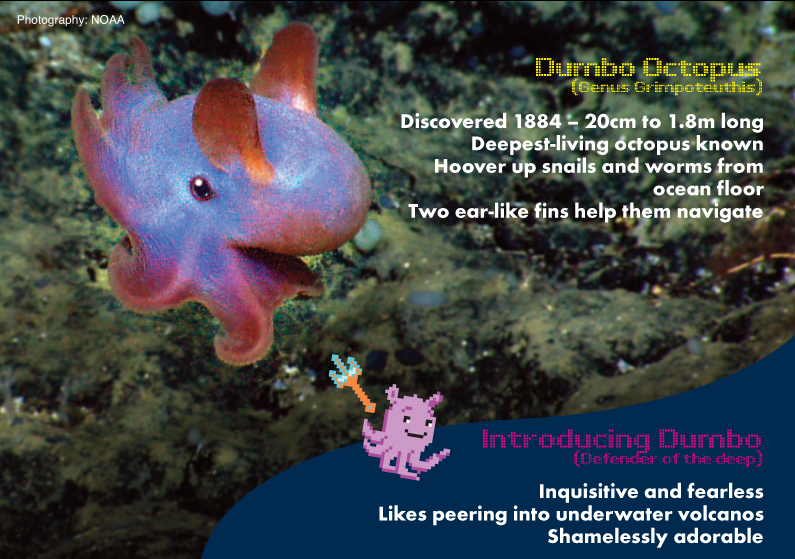
How deep-sea mining can affect the Dumbo Octopus. Image from the website of the Deep Sea Conservation Coalition
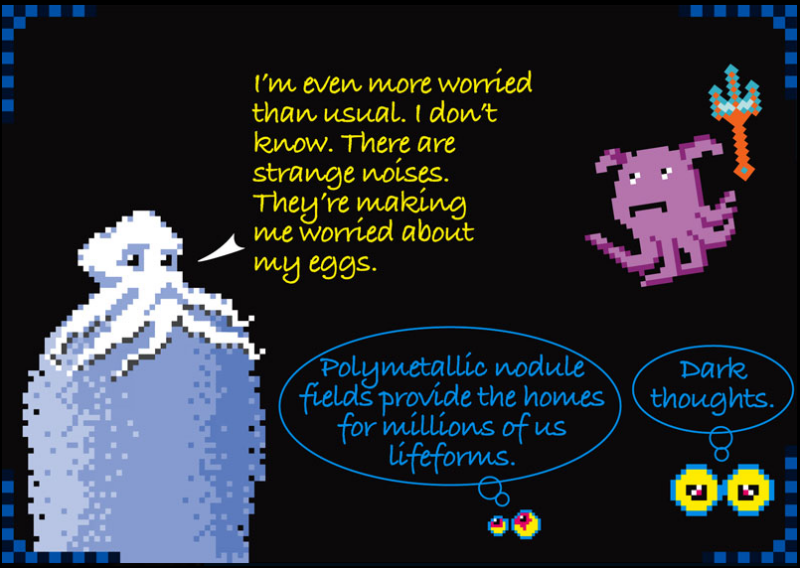
Deep sea mining will disrupt marine habitats. Image from the website of the Deep Sea Conservation Coalition
The game points out that humans are the actual ‘sea monsters’ threatening marine life and ecosystems.
Try the game to learn more about the “residents of the deep sea.”

